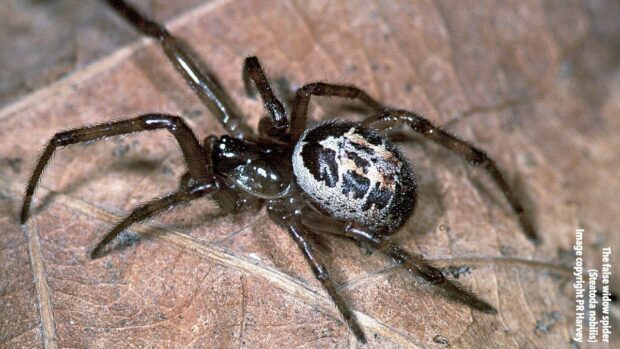The public are being urged to avoid contact with False Black Widow spiders, with sightings on the rise during this time of year.
The British Pest Control Association (BPCA), the national trade body, has said there has been a spike in sightings of venomous False Black Widow spiders across the country as they search for a companion.
At this time of year the female spider is searching for a male companion. They are not known as an aggressive arachnid, says the BPCA.
Spiders usually keep themselves off the ground in webs created in door frames, attics or outdoor sheds.
While not aggressive they may bite if provoked or there is accidental contact.
Natalie Bungay, technical and compliance manager at BPCA, said: “Requests for False Widow pest control call-outs tend to peak in October.
“The spiders increase in numbers during warmer months, but in late summer and autumn they may become particularly conspicuous as the males wander more extensively in search of a mate.
“False Black Widow spiders are not aggressive and will not launch an unprovoked attack on people.”
False Widows are venomous and their bites have been compared to wasp stings.
However any issues experienced because of a bite is more likely to be due to secondary infection than the bite itself
The BPCA has a guide on how to identify a False Widow on their website.
Ms Bungay added: “If you’re concerned about spiders in your home, seek advice from a pest management professional.
“You can remove a spider from your home by putting a small carton or glass over it and sliding a piece of card between the opening and the surface. You can also use a vacuum cleaner to remove spiders and their webs if you don’t want to get too close!
“However, if you’re unsure of the species, or don’t feel confident to tackle the issue yourself, get in touch with a BPCA member.”
